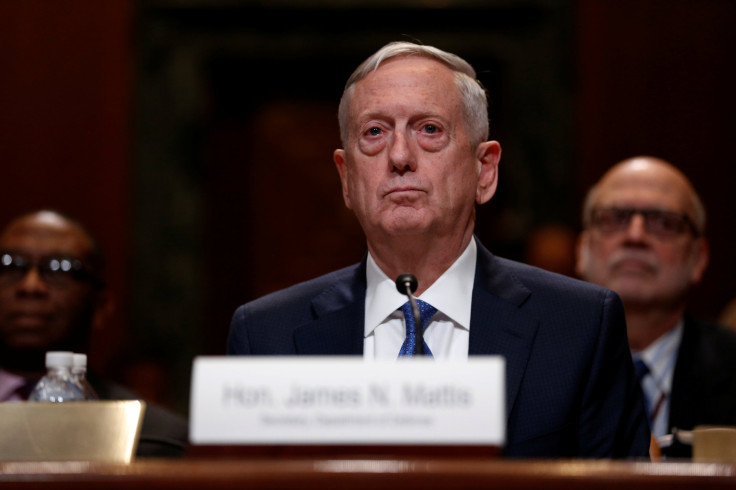War Against ISIS: US Troops In Iraq Should Stay After Islamic State Is Defeated, Mattis Says

As the fight against the Islamic State group has progressed, Defense Secretary Jim Mattis told a Senate subcommittee Wednesday that he believed it was in the country’s best interest to keep American forces in Iraq for well after the defeat of ISIS, Military Times reported.
Mattis, joined by Joint Chiefs of Staff Chairman and Gen. Joseph Dunford, was outlining his request for an additional $30 billion in funding for the military in the 2017 fiscal year budget. Mattis, a former Marine, detailed a three-phase, three-year plan to prepare and refurbish the military with new equipment and more training.
Read: Latest Victim Of Military Photo Scandal
“Phase one is this year’s defense appropriation, including the $30 billion request for additional appropriations for FY 2017 to get our aircraft back in the air, our ships back to sea, and our troops back in the field with refurbished or new equipment and proper training. This is a necessary investment to ensure our military is ready to fight today,” Mattis said in a prepared statement.
The additional $30 billion, which would not be covered under the continuing budget resolution that kept the military and the rest of the federal government solvent through September, included $5 billion for the fight against ISIS.
Once the hearing turned over to questions, Mattis said: “I believe it’s in our national interest that we keep Iraqi security forces in a position to keep our mutual enemies on their back foot.”
Read: U.S., South Korea Simulate North Bombing
Dunford also added that “the Iraqi security forces will need that kind of support for years to come.”
Recently, Iraqi forces had pushed ISIS back in its last remaining stronghold, Mosul, with U.S. troops not at the forefront but aiding in training and strategy. Still, the U.S. had kept a significant force in Iraq with roughly 6,000 ground troops around Iraq and Syria and 2,500 more stationed to the south in Kuwait if needed, according to Military Times.
© Copyright IBTimes 2024. All rights reserved.





















